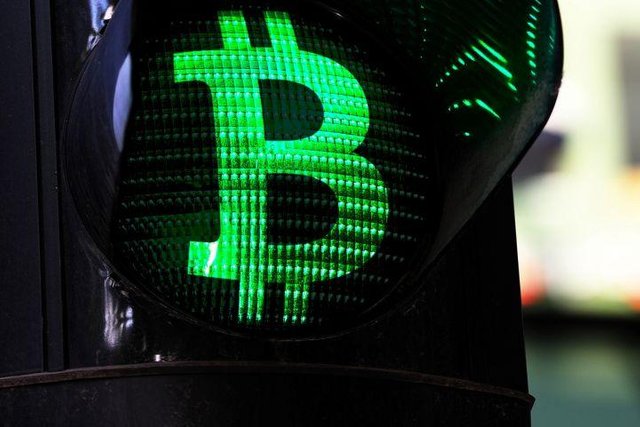Why Regulators Will Give Crypto a Green Light

ource: iStock/olaser?
Juan Villaverde is an econometrician and mathematician devoted to the analysis of cryptocurrencies since 2012. He leads the Weiss Ratings team of analysts and computer programmers who created Weiss cryptocurrency ratings.
The naysayers keep telling us that cryptocurrencies can't possibly work … that they fly in the face of existing laws and regulations in the world's dominant financial centers.
"Cryptos are contrary to central bank policies," they rave. "These kids are selling unregistered securities to unqualified investors!" they rant.
Take the case of the U.S., for example.
The CFTC, the agency in charge of regulating commodity futures markets, claimed that cryptocurrencies should be viewed as commodities …
The SEC, in charge of regulating securities markets, claimed many cryptocurrencies are securities offerings ...
And the U.S. Treasury Department seemed inclined to label all cryptos as "money." Guess what they're in charge of regulating?
Hah! It all sounds eerily similar to the early days of the automobile in 19th-century Britain.
Nearly all roadways were dirt roads — good for horses and carriages, bad for the nascent technology of self-propelled vehicles.
But instead of recognizing that the old roads were unsuitable, the authorities rushed to concoct laws that treated the new vehicles as unsuitable.
The "Locomotive Act of 1865" imposed speed limits of 4 mph in the country and 2 mph in the city. It required vehicles hauling wagons to be preceded by a man on foot waving a red flag and blowing a horn.
All designed to protect folks from "that horrible, devilish machine"!
And all for naught:
The laws temporarily halted most R&D for the new technology in Britain … gave the United States a chance to take the lead … and later forced Britain to reverse the innovation-stifling rules with new legislation like the "Motor Car Act of 1903."
The British government had no choice. Otherwise they'd be left out in the cold.
In sum …
A new technology was introduced.
It was deemed too disruptive to society, prompting regulators to rein it in.
None of this stops innovation. Quite to the contrary, what actually happens is that …
Innovation drives regulation. Not the other way around! Sounds familiar?
It should. Because when it comes to cryptocurrencies and their Distributed Ledger Technology (DLT), we're witnessing a similar sequence of events.
The SEC's decision to exempt Ethereum from securities regulations is a big deal: it will encourage crypto market liquidity and lead to more price stability.
Plus, there's another, even bigger reason this development is important.
To understand how, go back to 2017: The so-called "experts" in Washington and on Wall Street assumed the boom in Initial Coin Offerings (ICOs) was just a bubble. And I spoke with some smart investors who agreed.
"It's just a fad," they argued. "Since ICOs are like unregistered securities, the regulators will surely come down on 'em hard! They'll wipe out the ICOs. Worse, they'll smash technologies like Ethereum that make the ICOs possible. Soon it'll all be history."
Without a historical perspective on the evolution of technology, this argument actually made some sense:
Ethereum enabled the sale of ICOs, which are, in effect, unregistered securities.
The Ethereum team marketed their product heavily, including to U.S. citizens.
They offered a token for a future platform that was yet to be developed.
People who participated in the Ethereum offering were unabashedly deemed "investors."
And the investors who bought ICOs did so largely with the expectation of turning a profit — not to take advantage of Ether's so-called "utility value."
All seemingly valid reasons for the SEC to allege the sale of unregistered securities … force exchanges to de-list Ethereum … and try to bring it to its knees, right?
Maybe. But then something strange (or not-so-strange!) happened:
Innovation Drove Regulation
Wall Street started getting